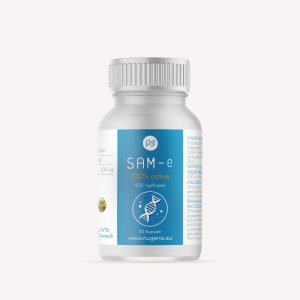
The Interface of Life – How Epigenetics Regulates the Dialogue Between Cell and World
The Interface of Life
Every cell lives at the boundary between self and world. Its membrane defines identity, yet survival depends on a continuous dialogue across that boundary. Through channels and transporters, the cell negotiates with its environment — receiving nutrients, exchanging signals, releasing neurotransmitters. These gates are not fixed. Their permeability is dynamically regulated by epigenetic mechanisms that adapt the rhythm of exchange to stress, nutrition, and emotional state. In this sense, membrane transporters are the executive tools of the epigenome — where molecular memory becomes cellular behavior.
Serotonin Transport and Emotional Regulation
The SLC6A4 gene encodes the serotonin transporter (SERT), responsible for clearing serotonin from the synaptic cleft. Its promoter methylation is one of the best-established epigenetic marks in psychiatric research. Chronic psychosocial stress, childhood neglect, or social isolation increase methylation of SLC6A4, silencing transcription and amplifying serotonergic signaling noise. The resulting imbalance contributes to anxiety and depression.
Research from Freiburg and the Max Planck Institute revealed that individuals carrying the short allele of the 5-HTTLPR polymorphism show stronger methylation responses to stress. Thus, the genetic variant sets the sensitivity of the epigenetic switch: SNPs determine the pen, experience writes the story.
Carnitine Transport and Metabolic Balance
At the metabolic level, SLC22A5 (OCTN2) mediates carnitine uptake, essential for mitochondrial β-oxidation. Promoter methylation and histone acetylation tightly control its activity. Under oxidative stress or excess lipid load, hypermethylation represses OCTN2, reducing fatty-acid oxidation and energy output. Caloric restriction or activation of SIRT1 reverses these marks, restoring transcription and mitochondrial efficiency — a clear example of how nutritional epigenetics restores metabolic dialogue.
Glucose Transport and Energy Signaling
The insulin-responsive glucose transporter SLC2A4 (GLUT4) demonstrates the intimate link between lifestyle and gene expression. Physical inactivity leads to promoter methylation and transcriptional silencing, restricting glucose entry. Exercise activates AMPK and SIRT1, demethylating the GLUT4 locus and reopening chromatin. Movement literally re-opens the cellular gates for energy. The well-known metabolic benefits of exercise are, in molecular terms, epigenetic corrections of transporter silence.
Ions, Vitamins, and Neurotransmitter Precision
Voltage-gated ion channels (CACNA1C, KCNQ, SCN1A) and nutrient transporters (SLC19A1 for folate) respond to histone modifications that fine-tune excitability and metabolic homeostasis. When folate uptake is epigenetically reduced, the methionine-SAM-e cycle slows down, compromising global methylation and thereby the stability of the very genome that directs these gates.
Pharmacoepigenetics — The Therapeutic Frontier
Transporters such as ABCB1 and ABCG2 control the cellular efflux of drugs and toxins. Their expression is also epigenetically plastic. Methylation patterns can determine whether antidepressants or anticancer agents penetrate tissues or are expelled. This variability explains why therapeutic response differs between individuals — not solely because of dosage or genetics, but because the epigenetic state of transporters modulates pharmacokinetics itself.
Closing Reflection
Membrane transporters translate genomic potential into physiological reality. They are not passive conduits but responsive sentinels, continually rewriting the interface between cell and world. In them, the genome learns to listen — adjusting its conversation with the environment in real time. To study the epigenetics of transport is therefore to observe life at its most subtle frontier: where information becomes exchange, and exchange becomes identity.
Eduard Rappold
Note: This information is provided for educational purposes only and does not replace professional medical advice. Always consult qualified healthcare professionals for medical concerns.
Copyright © Eduard Rappold 2025
http://nugenis.eu/shop
NUGENIS specializes in epigenetically active nutritional supplements.

